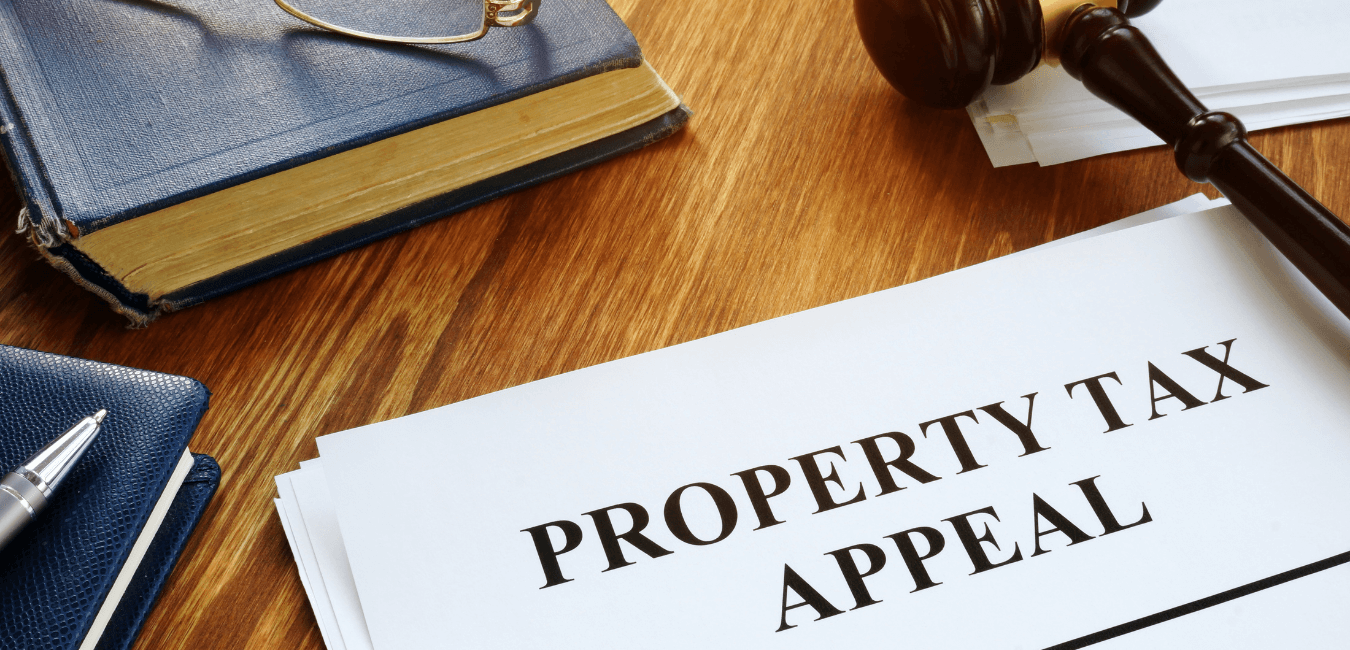
Is a bank vault door part of the building or a piece of equipment? Understanding the nuances of answering this question reveals how retail banks can save money on property taxes.
Business property taxes represent a significant expense for retail banks, especially those with multiple branch locations. Therefore, identifying property tax savings can improve a bank’s bottom line.
In this post, we review the types of business property taxes banks pay, offer tips for reducing tax bills, and explain why the classification of a vault door isn’t as straightforward as you would think.
WHAT TYPES OF PROPERTY TAXES DO BANKS PAY?
Like other businesses, banks pay two types of commercial property taxes. Banks pay real estate states and business personal property taxes. When people think of taxes, most people think of income taxes paid at the federal and state level. The federal government doesn’t collect property taxes. Property taxes primarily fund state and local governments. A county official, typically the tax assessor or collector, handles property taxes for all the tax jurisdictions in a county.
REAL ESTATE TAXES
Real estate taxes cover land and buildings. Tax authorities appraise the current market value of a property. Then the property value multiplied by the current tax rate gives the final amount due. Unless property values grow exponentially, real property tax bills should increase at a reasonable and predictable rate.
PERSONAL PROPERTY TAX
Personal property taxes cover property assets other than buildings and land. Personal property includes fixed assets the business owns and uses to generate income.
EXAMPLES OF BUSINESS PERSONAL PROPERTY INCLUDE:
- Computer equipment
- Supplies on hand
- Machinery and equipment
- Office furniture and fixtures
Not every state collects business personal property tax. In states collecting personal property tax, depreciation schedules determine the amount owed in taxes. These schedules can vary from county to county. In most cases, the tax depreciation will not match the bank’s book depreciation.

HOW BANKS CAN FIND BUSINESS PROPERTY TAX SAVINGS
Business property taxes contain nuances. Understanding the process and regulations helps banks better identify potential tax savings. Follow the tips below to reduce your tax bills.
REVIEW TAX REGULATIONS FOR EVERY LOCATION
Back to our vault door example. Whether it’s part of the building or a piece of equipment depends on the location. Some counties may consider the vault door part of the building and include it in the real estate taxes. Other counties may exclude the vault door from the real estate taxes and expect the bank to pay personal property taxes on it.
Take the time to investigate the regulations for each branch or property location. Banks can easily overpay their taxes by including vault doors or other equipment on the asset listing when the county also includes those items in their real property valuation.
INSPECT ASSET CATEGORIZATIONS
Bank owners should do more than check the separation of real and personal property. Personal property categories determine the depreciation schedule for the asset. The categories and schedules vary by state and even at the county level. Counties often have more asset categories than what’s on their pre-printed forms. A knowledgeable tax professional can help identify the best category for each asset.
ELIMINATE DUPLICATE ASSETS
Many banks overpay taxes by paying on an asset in several different counties. This scenario frequently occurs after a merger or acquisition. An asset moves to another branch but remains on the books at both locations. An asset review can help identify any duplicate listings.
IDENTIFY GHOST ASSETS AND IDLE EQUIPMENT
An asset review also helps banks identify any ghost assets or idle equipment inflating their tax bills. Ghost assets remain on your tax asset listing even though the company no longer owns them. When a business sells or disposes of an asset, they should remove it from the listing they provide their local tax authorities. In banks with multiple branches or a recent merger, the person in charge of filing the tax asset listing may not be aware that the company no longer owns the equipment. Similarly, they might be unaware that the bank is no longer using an asset. Idle equipment can qualify for an accelerated depreciation schedule, so the bank pays less in taxes on the unused equipment.
KNOW YOUR RIGHTS
Banks can appeal their property tax appraisals. If you suspect a county assessor overvalued your property, you can appeal their assessment. Successful appeals result in a lower appraisal and tax bill.
HOW SHARON H. LYALL, CPA CAN HELP BANKS FIND PROPERTY TAX SAVINGS
Sharon H. Lyall, CPA, and staff have the business property tax knowledge and experience to know how retail banks can save money on property taxes. Managing asset listings and ensuring accurate appraisal is difficult when you operate one branch, let alone multiple locations.
Our firm specializes in property taxes to help banks and other businesses reduce their tax burdens and improve their bottom lines.
OUR SERVICES FOR RETAIL BANKS INCLUDE:
- Evaluating the accuracy of tax appraisals of banks’ real estate property and if an appeal is warranted
- Conducting a thorough asset review to ensure assets are correctly categorized and to remove any ghost assets
- Providing audit support
- Helping decode tax bills to identify sax savings
Contact us today to learn more about how we can help reduce your bank’s business property tax bill.
